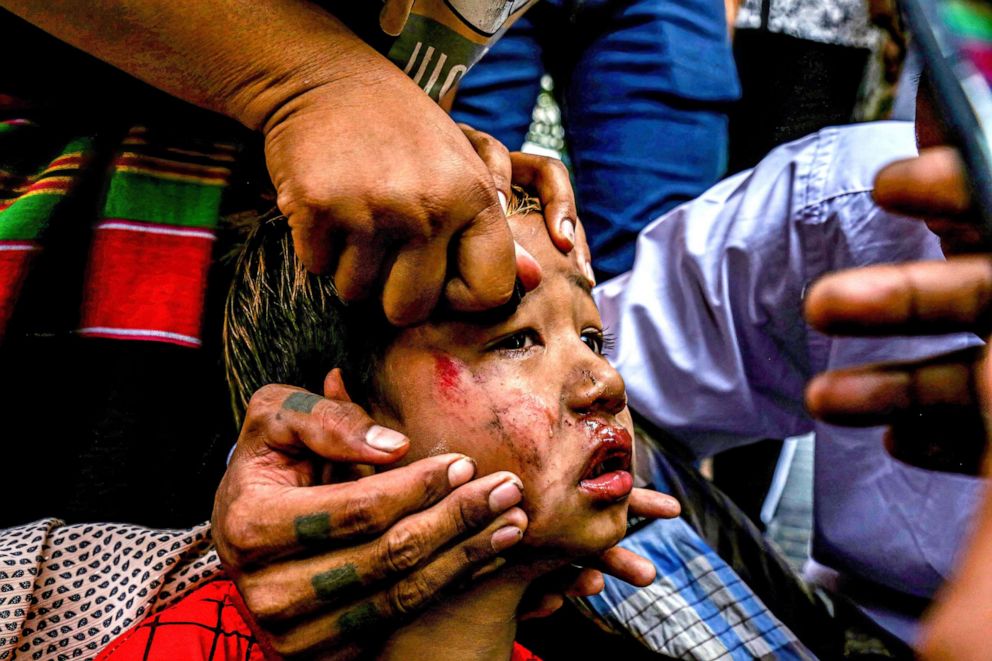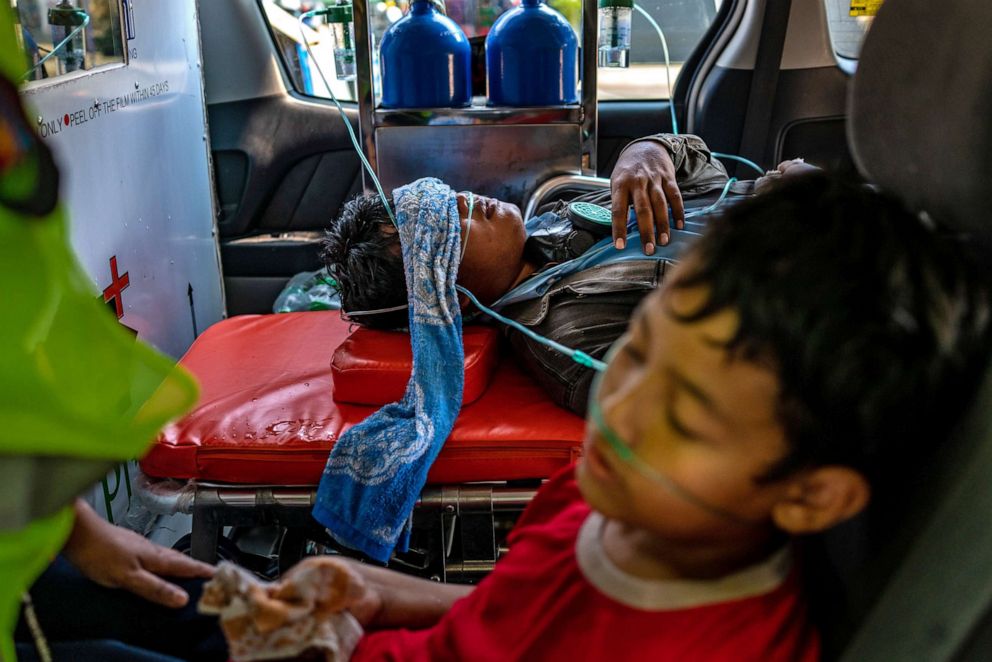Myanmar's military junta has reportedly killed at least 43 children since coup
"This is a nightmare scenario unfolding."
LONDON -- At least 43 children have been reportedly killed by armed forces in Myanmar in the two months since the military junta seized power, according to international humanitarian group Save the Children, which described the situation as "a nightmare scenario unfolding."
"We are shocked that children continue to be among the targets of these fatal attacks, despite repeated calls to protect children from harm," Save the Children said in a statement Wednesday. "It is clear that Myanmar is no longer a safe place for children."
Overall, at least 543 people -- adults and children -- have been killed by authorities since the Feb. 1 coup, though the actual number of fatalities is likely much higher, according to the Assistance Association for Political Prisoners, a human rights organization based in Myanmar's largest city, Yangon.
The death toll of children has more than doubled in the past two weeks, according to Save the Children. A total of 15 kids under the age of 16 were among those killed, with the youngest being a 6-year-old girl. Also among the casualties was a 13-year-old boy who was reportedly shot in the head while trying to flee from armed forces and a 14-year-old boy who was reportedly shot dead while he was at his own home, according to the group.
"It is especially horrifying that several of these children were reportedly killed at home, where they should have been safe from harm," Save the Children said. "Innocent children have had their futures brutally and needlessly snatched away from them. Grieving families -- among them young children who have seen siblings die -- are suffering unimaginable loss and pain. Children have witnessed violence and horror."

The number of kids who have been physically injured as a result of the post-coup violence was unknown, but Save the Children said "it is likely to be significant." Among those wounded was a 1-year-old who was reportedly shot in the eye with a rubber bullet, according to the group.
Save the Children said it was also alarmed by reports of airstrikes hitting a school in Myanmar's southeastern Karen State on Monday. Although the building was reportedly empty at the time, images showed the school completely destroyed. Save the Children warned that such attacks "constitute a grave violation of children’s rights and cannot be justified under any circumstances."
Since last Saturday, the military has been conducting daily airstrikes in Karen State, where an ethnic minority armed force is fighting for greater autonomy for the Karen people. The Karen National Union, the leading political body representing the Karen minority, said in a statement that many civilians, including children, have been injured or killed in the bombings and that its armed wing may have to respond. The attacks have forced thousands of civilians to go into hiding or flee into neighboring Thailand, according to Free Burma Rangers, a humanitarian relief agency that provides medical assistance in the region.
Myanmar descended into chaos after the military ousted the civilian-led government on Feb. 1, reversing a decade of the country's slow road to democratization. The military had previously ruled Myanmar, formerly known as Burma, for nearly 50 years.
Peaceful demonstrations against the current junta rule have been held in cities across the country ever since, despite the military's violent efforts to quell the opposition. Young adults and teenagers are on the front lines of the anti-coup protest movement.

A 26-year-old woman, who spoke to ABC News on condition of anonymity, said she is among dozens of activists who protest in her neighborhood each day. She said they build barricades to hide behind and prepare fireworks, Molotov cocktails and slingshots to defend themselves. They had always intended to protest peacefully and tried to remain nonviolent until March, but the indiscriminate use of live rounds by security forces has forced them to retaliate, she said.
Every day when security forces arrive in their neighborhood to confront protesters, authorities begin by firing warning shots using sound cannons, she said. As they get closer, authorities fire rubber bullets and then eventually switch to live ammunition. The older activists leave the area first and then, when authorities draw near, the rest disperse and hide in random homes, she said. Authorities then fire indiscriminately at the buildings where they think people are hiding. Authorities also destroy their barricades at the end of each day, she said.
Every few days, a protester is shot, she said. One of her fellow activists was recently shot dead and their group had to fight to get the body back from authorities, who tried to remove it, she added.
Fleeing from gunfire every day once frightened her but now she's used to it, she said, and she knows that if they don't protest the junta will win.
Save the Children and its partners are providing support to kids who have been harmed in Myanmar as well as their families. The organization is also offering front-line emotional support to children who have witnessed violence and are referring kids with severe mental health needs to specialists. Due to insecurity and COVID-19 restrictions, much of the work is being done remotely and many children are still not able to receive the help that they need, the group said.
"We once again call on the armed forces to end these deadly attacks against protesters immediately," Save the Children said. "Time and time again we see that children are the innocent victims of any crisis. The only way to protect children in Myanmar is to stop all lethal violence immediately."
ABC News' Sohel Uddin and Karson Yiu contributed to this report.



